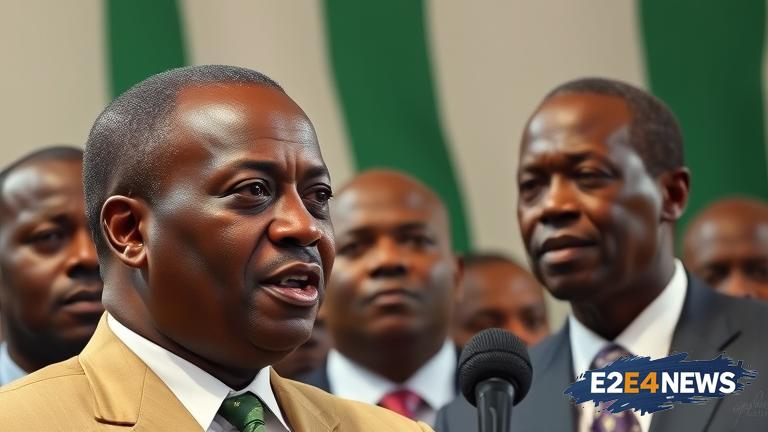The Ivory Coast is gearing up for a presidential election, with incumbent President Alassane Ouattara seeking a third term in office. This move has been met with opposition from various groups, who claim that Ouattara’s candidacy is unconstitutional. The Ivorian constitution limits a president to two terms in office, but Ouattara has argued that a 2016 constitutional reform reset his term count. The opposition has vowed to boycott the election, citing concerns over the electoral process and the potential for violence. The election is scheduled to take place on October 31, with several other candidates also vying for the top spot. Ouattara’s decision to run for a third term has been widely criticized, with many seeing it as a power grab. The international community has also expressed concerns over the situation, with the United Nations and the African Union calling for calm and restraint. The Ivory Coast has a history of political instability, with the country experiencing a civil war in 2010-2011. The election is being closely watched, with many fearing that it could lead to further unrest. The opposition has accused Ouattara of trying to manipulate the electoral process, and has called for the election to be postponed. The government has rejected these claims, and has vowed to press ahead with the election as planned. The Ivory Coast is a major economic power in West Africa, with a strong agricultural sector and significant oil and gas reserves. The country has made significant progress in recent years, but still faces many challenges, including poverty and inequality. The election is seen as a critical test of the country’s democratic institutions, and will have significant implications for the region as a whole. The international community is urging all parties to respect the democratic process, and to prioritize the interests of the Ivorian people. The situation remains tense, with many fearing that the election could lead to violence and instability. The opposition has vowed to continue its boycott, and has called for mass protests and demonstrations. The government has warned against any attempts to disrupt the election, and has vowed to take all necessary measures to maintain order. The election is a critical moment for the Ivory Coast, and will have significant implications for the country’s future. The international community is watching closely, and is urging all parties to prioritize the interests of the Ivorian people. The situation remains uncertain, with many fearing that the election could lead to further unrest and instability. The Ivory Coast has a long history of political turmoil, and the current situation is a reminder of the challenges that the country still faces. The election is a critical test of the country’s democratic institutions, and will have significant implications for the region as a whole. The international community is urging all parties to respect the democratic process, and to prioritize the interests of the Ivorian people. The situation remains tense, with many fearing that the election could lead to violence and instability. The opposition has vowed to continue its boycott, and has called for mass protests and demonstrations. The government has warned against any attempts to disrupt the election, and has vowed to take all necessary measures to maintain order. The election is a critical moment for the Ivory Coast, and will have significant implications for the country’s future.
